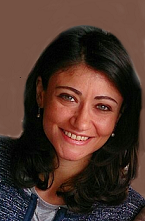In 2019, Dr Rosa Letizia, Senior Lecturer in the engineering department at Lancaster University, was awarded a Leverhulme Trust Senior Research Fellowship. These fellowships allow awardees to focus full-time on research by covering the costs of a replacement academic to take over their teaching and administrative duties for a year.
Millimetre waves have the potential to carry wireless high-data-rate communications for both terrestrial and satellite networks. Millimetre waves occupy the frequency spectrum from 30 GHz to 300 GHz – in the spectrum between microwaves and infrared waves. Until recently, this part of the spectrum was unused because few, if any, electronic components could generate or receive millimetre waves.
Now, fuelled by the demands for future 5G technology, Dr Rosa Letizia is combining two areas of Lancaster University’s specialist skills to produce complex metal components that can operate at 70 GHz and above.
The university’s engineering department is known for its work in additive manufacturing (3D printing) and millimetre wave technology. This expertise could enable a step-change in the design and manufacturing of millimetre wave components so that they can be affordably produced, either as bespoke items or in large volumes.
Dr Letizia’s research is at the proof of concept stage. When developed, her research plans for millimetre wave technology could help unlock a range of high-data-rate connectivity. If high-throughput satellite communication systems can complement internet distribution of terrestrial networks, then regions not usually covered, like remote areas and at sea, would be accessible in the future. This would help equalise digital deficits worldwide.
Find out about current research opportunities and fellowships.

